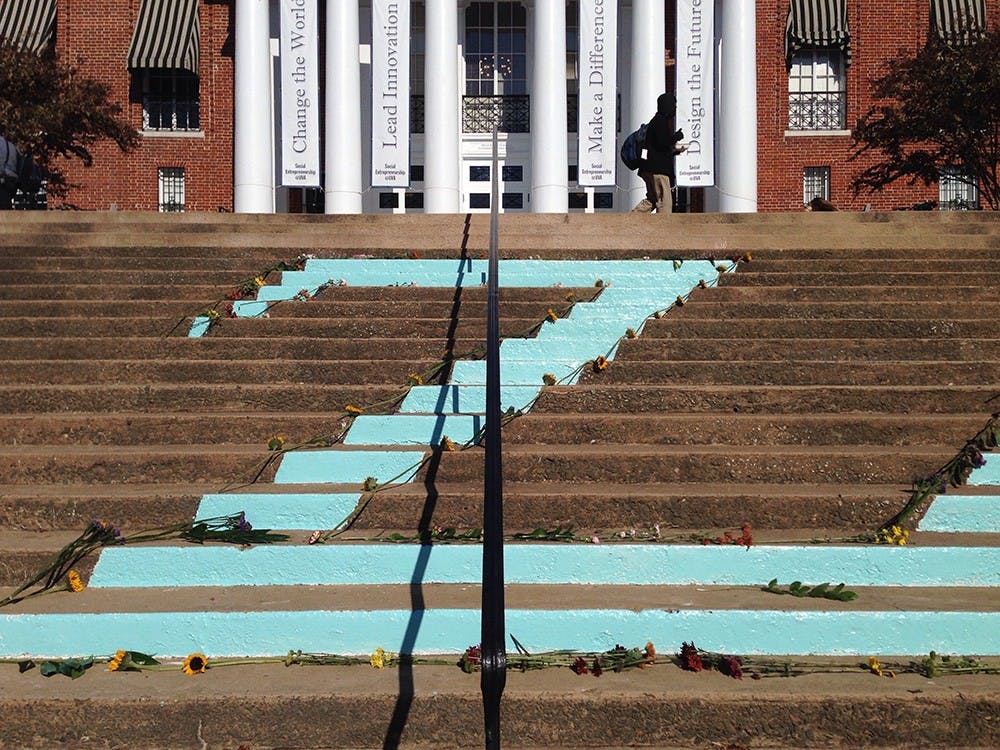As students work through a particularly trying semester — riddled with multiple student deaths and graphic allegations of rape which have shaken individuals throughout the University community — some students are working to find ways to support their peers through the turmoil.
Student efforts such as “Support Our Survivors” and “What Can We Do?” aim to provide peers constructive and supportive environments to stand against rape culture and sexual assault at the University.
Several student groups — One Less, One in Four, Peer Health Educators, Feminism is for Everyone, Sustained Dialogue and the Sexual Violence Prevention Coalition — will host a discussion Monday at 6 p.m. called “What Can We Do?” The involved organizations hope to mediate dialogue among students about the Rolling Stone article released last week detailing several allegations of rape at the University, and discuss how the community can best offer support to survivors.
SVPC’s Major Events Chair Erica Robertson, a fourth-year College student, said “What Can We Do?” will also allow students to discuss the University’s proposed changes to the current sexual misconduct policy.
“[It is a] facilitated discussion where people can come together to talk about how we can move forward from this and how policy is being changed,” she said. “[It is a] safe space for anyone to get involved in the extent that they want to.”
Event organizers hope to promote less radical, angry responses to the Rolling Stone article.
Third-year College student Isabelle Merritt, the treasurer of One Less, said coming together in constructive manner is vital to fighting rape culture at the University.
“I think a concern we have about some of the negative reactions is that it could scare [survivors] away from reporting or using any of the resources that the University can offer,” Merritt said.
One in Four President Brian Head, a fourth-year Commerce student, stressed the importance of not targeting all men as the problem.
“Men are often approached as being the problem, with the message being, ‘Stop raping people,’” Head said. “However, this message is not a realistic one, because the majority of men will never commit rape. Instead our message is one about empowerment: we [all] need to change our behaviors and attitudes … together.”
Third-year College student Alex Pinkleton launched “Support Our Survivors” to share important resources for students as well as shift the focus of University dialogue from the negative aspects of the article to its ability to propel change in a positive manner.
“The point of [Jackie] doing the story … was to create an environment where survivors could share their stories as well, and to kind of spark the change,” Pinkleton said.
Counseling and Psychological Services, one of the primary counseling resources available to students, allows students to seek professional help when needed.
CAPS Director Tim Davis alerted students in an email CAPS would have extended hour during the weekend. Davis said students must support their peers to foster a familiar and comfortable environment.
“Don’t stop asking, ‘How are you doing?’,” he said. “That’s probably the most helpful thing you can do.”
Robertson said listening is very important when communicating with a survivor.
“Tell them that you believe them, and ask them what you can in that moment do to help them,” she said.
Davis said students should not become engulfed in reactions and events on Grounds, but should make some attempt to remove themselves from stress caused by recent incidents.
“Don’t make a hobby of studying what’s going on on Grounds,” he said. “Step away from it, talk with your friends about something else, put on some of your favorite music that takes you away from it.”







